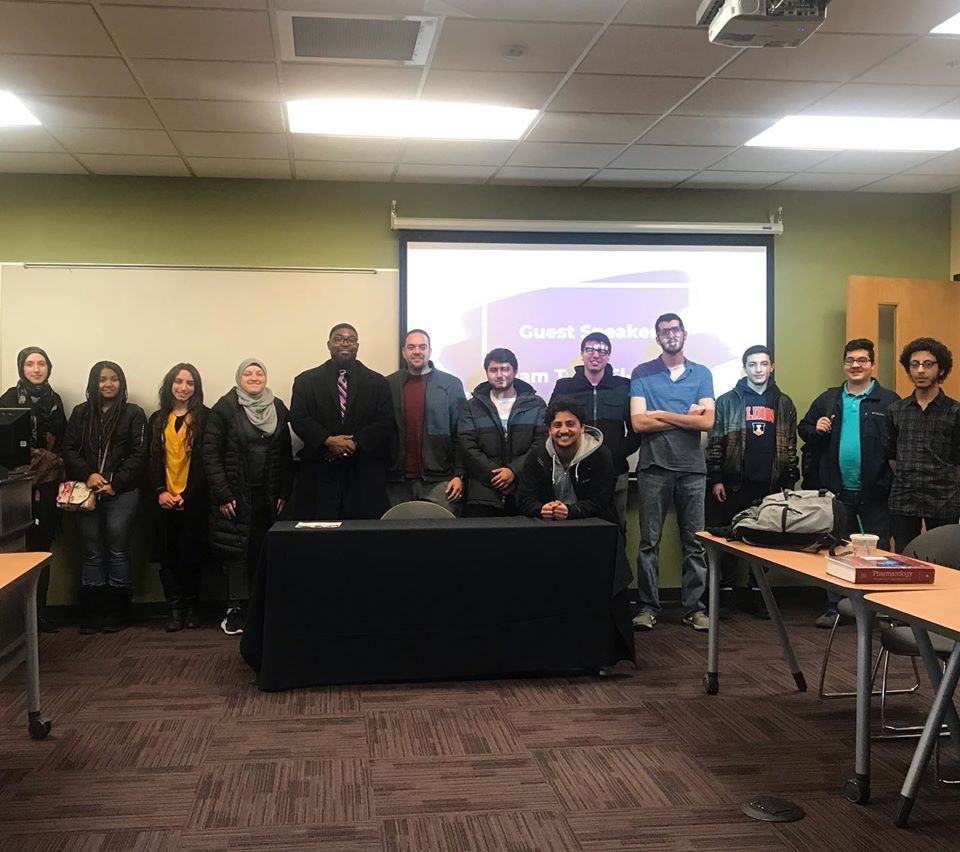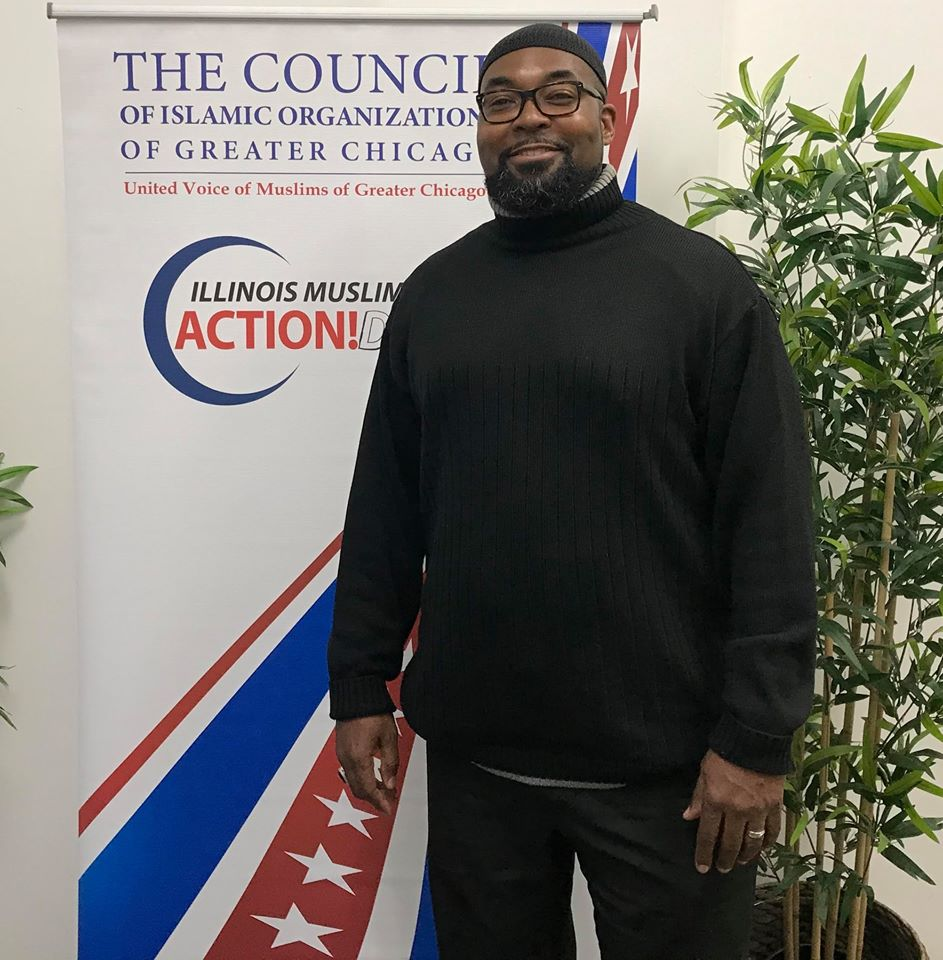The state of Illinois is one with the highest Muslim populations. In the city of Chicago, between 11 percent and 18 percent of the population is Muslim, with approximately 52 masjids within city limits in addition to Islamic schools and other religious organizations.
The Council of Islamic Organizations of Greater Chicago (CIOGC) provides opportunities for collaboration between the array of Muslim houses of worship and organizations.
“The Council is a 28-year-old umbrella organization that serves as a principal representative body for Chicagoland Muslims,” explains CIOGC’s new director of civic engagement and interfaith services, Tariq El-Amin.
“We work to support the health and growth of our 60-plus member organizations while also providing broad representation rooted in our institutional civic, interfaith, media, private, and public relationships.”
Imam of Majid Al-Taqwa and the former host of popular Muslim program Radio Islam USA, El-Amin shared some of what he hopes to accomplish in his position with AboutIslam.
“In addition to supporting past/current community leaders’ decades of work, I hope to contribute to strengthening/building intra-community relationships grounded in trust, respect, and appreciation,” he told AboutIslam.net.
“I will focus on establishing stronger working relationships with city, county, and state government and build relationships between Chicagoland’s Muslim community and the African American Church.”

Civic Engagement
Despite hostile social climates, American Muslims increasingly take part in civic and political arenas to make differences in their communities. According to Thomas Ehrlich:
Civic engagement means working to make a difference in the civic life of our communities and developing the combination of knowledge, skills, values and motivation to make that difference. It means promoting the quality of life in a community, through both political and non-political processes.
El-Amin stressed on the importance of civic engagement for Muslims to AboutIslam.
“To be civically engaged shows that we have accepted the responsibility of social stewardship. I think the importance of civic engagement is better understood when we have a definition that accurately captures its depth and breadth,” he said.
“In a society where traditional forms of physical protest, be they marches, sit-ins, die-ins, or rallies, now have their equivalents in the sphere of social media communication via twitter storms, hashtag campaigns, and Facebook live events, some of us fall victim to believing that those engaged in these expressions are the exclusive embodiments of civic engagement.”
Education Role
El-Amin mentioned the importance of education and development for effective civic engagement.
“Education is an integral part of civic engagement. In surah 13:11 of the Qur’an, Allah reminds us; He will not change the condition of a people until they first change what is in their hearts. I take this verse as an encouragement for communal self-assessment. The change we seek is connected to the people we are, but if we have no grasp of who we are and how we contribute to our demise, then we will not make the necessary changes to receive Allah’s favor.
The need to educate ourselves about who we are is immediate and pressing. There have been some among us who have been comfortable with singular representations. Whether Desi, Arab, African, immigrant or indigenous, no one model is a universal representation of all Muslims.
The political implications of informed Muslim communities are in the realization and appreciation of the milieu of ethnic, racial, and socio-economic variety we represent, which culminates in the expansion of what we determine to be “Muslim issues.”

A Voice for Chicago Muslims
El-Amin outlined his plans to use the voice he built as a radio host to About Islam in his new position.
“I had the privilege of listening to a broad cross-section of people who fit into just about every box we check off today. I spoke with Muslims locally, nationally, and across the globe. This experience allowed me to gain a much deeper appreciation of the interconnectedness of the human struggle for a dignified existence, the struggle to live peaceful lives, to live with purpose, creativity and active participation in the governance of one’s own life.
Throughout hundreds of conversations, I focused on recognizing the connective elements and appreciating the points of divergence, doing my best to bridge the two. Alhamdulillah (all praise to God), that experience was a gift and has prepared me to speak to, and for (when the occasion warrants) our diverse communities in ways that affirm the vibrance, beauty, resilience, and talent of the Chicagoland Muslims, inshaallah (God willing).

